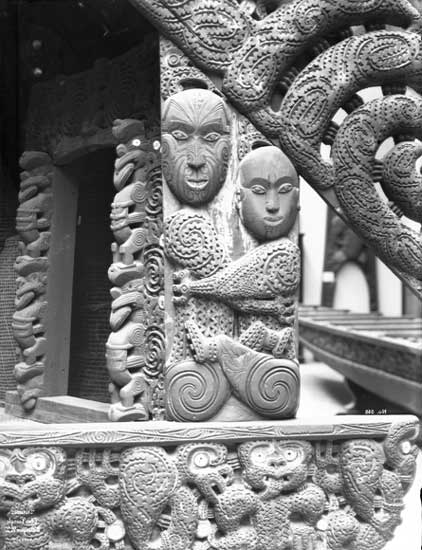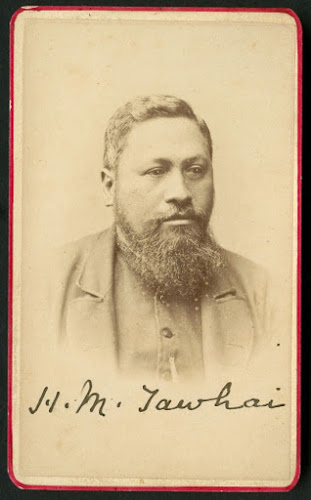Gate Pā and the Māori Rules of War
The New
Zealand Wars fought between 1860 and 1872 were a time of acute tension and
conflict in the nation’s history. But the wars were not without genuine
examples of mutual respect among the contending Māori and British troops, along
with occasional acts of great compassion and kindness towards enemy
fighters.
In the
Tauranga district a remarkable document that bore some striking similarities
with the First Geneva Convention signed months later in Switzerland also
emerged during this period. In January 1864 several hundred British troops
landed at Tauranga in response to reports that local iwi were providing support
to Waikato Māori who had been under attack since July 1863.
It soon
became apparent that the war was almost certain to spread to Tauranga. Local
chiefs accordingly issued a series of challenges to the British, in accordance
with Māori beliefs that fighting should be conducted in an open, honourable and
brave manner.
Along
with these invitations to fight came a letter setting out the laws that would
be respected in any clash. Sent to the commanding officer of the British troops
at the end of March, it set out that wounded soldiers would be spared so long
as they made it clear they no longer wished to fight and that those who
surrendered would also be saved. Civilians, including all Pākehā women and
children, would not be harmed.
 |
| Henare Taratoa, by Horatio Gordon Robley (A-033-011, ATL) |
These
rules were drafted by Henare Wiremu Taratoa, a young lay reader in the Anglican
Church who had been educated at St John’s College in Auckland. Taratoa had
spent time at the Otaki mission station before returning to Tauranga when war
seemed likely.
British
troops did not know quite what to make of Taratoa’s rules, but they were
closely adhered to by Māori when fighting occurred at Gate Pā (Pukehinahina) on
29 April 1864. Although the British suffered a heavy defeat, including many
killed, wounded soldiers were unharmed.
 |
| Heni Te Kiri Karamu (1/2-041822-G, ATL) |
Heni Te
Kiri Karamu, also known as Heni Pore (Jane Folely), risked death in order to
take water to one of the British officers who lay dying inside one of the
trenches. This gesture was later immortalised in a famous memorial at the
Tauranga Mission Cemetery. It depicts senior chief Rawiri Puhirake’s command to
honour the rules of fighting agreed by Tauranga Māori, while in the background
water is carried towards the wounded soldier. (Some versions have it that
Henare Taratoa or a man named Te Ipu was responsible for taking water to the
officer, Lieutenant-Colonel Henry Booth. It seems likely that several similar
acts of this nature were shown towards British soldiers wounded at Gate Pā).
 |
| Marble Freize on the Memorial to Rawiri Puhirake, Tauranga Mission Cemetery (Tauranga City Libraries) |
Henare
Taratoa was killed when British troops clashed for a second time with the
Tauranga tribes and their allies at Te Ranga on 21 June 1864, resulting in over
100 Maori casualties. A copy of the rules of warfare he had drafted was found
on his body, headed by a Biblical quotation – ‘If thine enemy hunger, feed him;
if he thirst, give him drink’ (Romans 12:20).
The example
set by Tauranga Māori came to be widely admired and celebrated over time,
helping to challenge earlier stereotypes of Māori as ‘uncivilised’ or barbaric.
Instead, Gate Pā and the rules of warfare drafted by Henare Taratoa became a
byword for chivalrous and dignified conduct at a time of great destruction and
damage.
[First published as ‘Maori Rules of
War at Gate Pa’, Wars,
Laws and Humanity: New Zealand’s Engagement with International Humanitarian Law, New
Zealand Red Cross, Wellington, 2015, pp.4-5]



Comments
Post a Comment